Go back
Introducing the “Towards Responsible Publishing” proposal from cOAlition S
31/10/2023
In this blog post, Bodo Stern, Chief of Strategic Initiatives at the Howard Hughes Medical Institute and Johan Rooryck, Executive Director of cOAlition S, outline the new proposal from cOAlition S aimed at facilitating the transition to an open, scholar-led communication ecosystem.
Since the announcement of the Plan S Principles five years ago, cOAlition S has ‘raised the temperature’ and stimulated experimentation in a publishing system that has struggled to keep pace with the digital transformation of the research enterprise.
A vision for a community-based scholarly communication system
Driven by the same “duty of care for the good functioning of the science system” that inspired Plan S, the funders forming cOAlition S are now exploring a new vision for scholarly communication; a vision that holds the promise of being more effective, affordable, and equitable, ultimately benefiting society as a whole.
Our vision is a community-based scholarly communication system fit for open science in the 21st, that empowers scholars to share the full range of their research outputs and to participate in new quality control mechanisms and evaluation standards for these outputs.
Addressing current shortcomings
This proposal – called Towards Responsible Publishing – stays true to the original Plan S mission that ‘[research] can only work optimally if all research results are made openly available to the scientific community’. Moreover, it recognizes that the original focus on a static snapshot of the research process, the journal-accepted article, is problematic for several reasons.
First, the traditional journal-accepted article undermines timely dissemination and quality control of new research findings. Articles submitted under the pre-publication peer review model often take a year to get published. Such a long delay is arguably just as detrimental as the 12-month Open Access publication embargo that Plan S has eliminated. Compounding this delay, the cascading of articles from one journal to another, while concealing critical peer reviews, compromises the ability of the publishing system to fulfill its error-correcting and appraisal functions for science and scholarship.
Secondly, the journal-accepted article drives up publishing costs and puts more sustainable and equitable open access models at a disadvantage.
To address these and other shortcomings, the new proposal is anchored in two key concepts that extend Plan S:
1. Authors, not third-party suppliers, decide when and what to publish.
In such a ‘scholar-led’ publishing system, third-party suppliers can still offer and charge for services that facilitate peer review, publication and preservation. However, they will not block scholars from sharing their work at any stage during the research and dissemination process.
2. The scholarly record includes the full range of outputs created during the research cycle, and not just the final journal-accepted version.
By making early article versions and peer review feedback critical elements of the scholarly record, a future scholarly communication system can capture research ‘in the act’. Shining a light on how research progresses towards increasingly trustworthy knowledge creation offers opportunities for reviewing and filtering scholarly outputs for the purposes of curation and research assessment.
Enabling more effective curation mechanisms
In response to this proposal, some may ask “Won’t we be flooded with author-released content?”, and “Who has time to read all these additional outputs?”. Though it may seem counterintuitive, we believe that sharing research at an earlier stage could be the key to unlocking more effective curation mechanisms for determining what information to read and rely upon.
Under the current models of research dissemination, the predominant curation signals are managed by journal decisions. However, these decisions typically do not reveal the evidence on which they are based, namely the peer feedback and the subsequent improvements on the original article.
In contrast, when the full range of scholarly outputs is publicly available, curation signals can be validated and traced back to the evidence that informed them. Such validation can work even if some outputs, such as peer review reports, remain anonymous.
We understand that not every reader will be motivated to access these additional outputs. Nonetheless, in much the same way as readers of scientific articles expect the underlying data to be available, even if most will never access it, we believe that making the peer review dialogue available will harness the corrective power of science.
The result of an open, post-publication review process is that those who are interested – such as fellow researchers, or grant application/tenure review committees etc. – can scrutinize and assess the work more effectively.
Soliciting community feedback
To understand to what extent this proposal resonates with the research community, cOAlition S – with support from Research Consulting Limited and the Centre for Science and Technology Studies (CWTS) – will embark on a consultative process. This process will offer researchers and other stakeholders (such as research performing organizations, scholarly societies, and organizations that provide communication infrastructure) the opportunity to voice their opinions and contribute to the development of a proposal that serves their needs.
For more information about this consultation and details on how to participate, please visit: https://www.coalition-s.org/towards-responsible-publishing
Conclusion
Our proposal ‘Towards Responsible Publishing’ makes the case that Open Access publishing should extend beyond making the final product openly available. It should strive to disseminate the cumulative progress on a research project over time. This can be achieved when researchers take responsibility for sharing the full range of outputs related to their work and retain the right to do so freely and openly.
We urge all members of the research community to actively engage with this proposal. By embracing responsible publishing, we can collectively shape a more effective scholarly communication system, ensuring that the pursuit of knowledge benefits society at large. Your participation and support are crucial in realizing this vision.

Bodo Stern
Bodo Stern is the Chief of Strategic initiative at Howard Hughes Medical Institute (HHMI). He works directly with HHMI’s president and senior executive team to formulate and execute the organization’s strategic initiatives and direction, with emphasis on enhancing HHMI’s investment in research and science education. Bodo is also responsible for the Institute’s philanthropic collaborations to advance science. He previously served as HHMI’s chief development and strategy officer.
Before joining HHMI, Bodo served for eight years as director of research affairs at the Harvard Center for Systems Biology, where he helped to manage the Bauer Fellows Program, a unique initiative that gives young scientists the opportunity to run independent research groups. He also has worked as a senior scientific editor at Cell.
Bodo earned a PhD in biochemistry from University College, London, and an MA in biochemistry from the University of Tübingen, in Germany. His primary research explored how cells correct chromosome errors during cell division.
View all posts by
Bodo Stern
Johan Rooryck
Johan Rooryck is Executive Director of cOAlition S and a linguistics professor at Leiden University. He is the editor-in-chief of the Fair Open Access journal Glossa: a journal of general linguistics since 2016. From 1999 to 2015, he was the executive editor of Lingua (Elsevier), when its Editorial Team and Board, as well as its reader and author community, decided to leave Lingua to found Glossa. He also is a founding member and president of the Fair Open Access Alliance (FOAA) and Linguistics in Open Access (LingOA). He is a Member of the Academia Europaea.
View all posts by
Johan Rooryck



